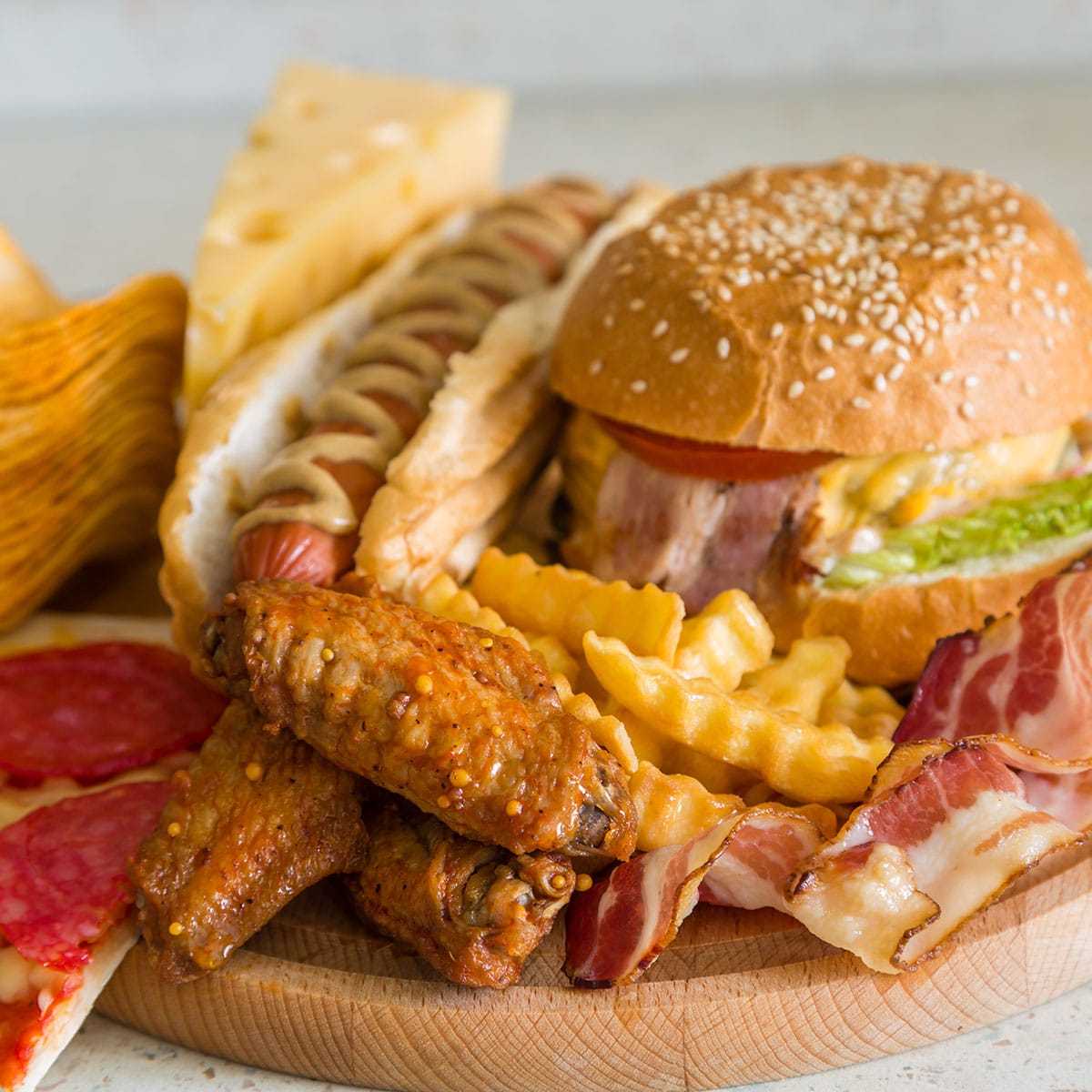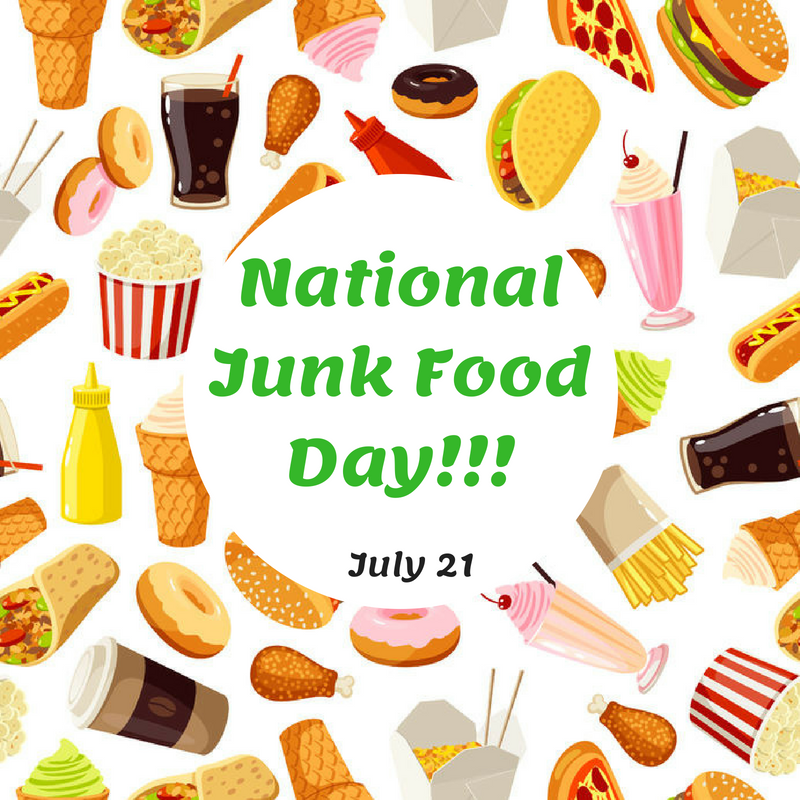Junk Food Day, a time to revel in the delectable indulgences that often tempt us, presents an opportunity to reflect on our dietary habits and the impact of excessive junk food consumption. While these treats can provide fleeting pleasure, understanding their potential health implications and exploring alternative healthy snack options is crucial for maintaining a balanced and nutritious diet.
From defining Junk Food Day and its significance to discussing the health risks associated with junk food intake, this comprehensive guide delves into the importance of mindful eating and making informed choices for our well-being.
Definition of Junk Food Day

Junk Food Day is an annual event celebrated on July 21st. It is a day dedicated to the enjoyment and appreciation of junk food, which typically refers to processed, packaged foods that are high in calories, sugar, unhealthy fats, and sodium.
Junk food is often criticized for its lack of nutritional value and potential health risks, but it remains a popular choice for many people due to its taste, convenience, and affordability.
Purpose and Significance of Junk Food Day
Junk Food Day serves several purposes and has particular significance:
- Indulgence and Enjoyment:Junk Food Day provides an opportunity for people to indulge in their favorite junk food without guilt or judgment.
- Nostalgia and Comfort:Junk food often evokes feelings of nostalgia and comfort, reminding people of their childhood or special occasions.
- Awareness and Education:Junk Food Day can also serve as a reminder about the importance of moderation and healthy eating habits.
- Social Bonding:Sharing junk food with friends and family can foster social bonding and create memorable experiences.
Health Implications of Junk Food Consumption

The regular consumption of junk food poses significant risks to overall health and well-being. Its high content of unhealthy fats, added sugars, and sodium can lead to a myriad of health complications.
Cardiovascular Health
Excessive junk food intake is a major contributing factor to cardiovascular diseases. The high levels of saturated and trans fats in these foods elevate LDL cholesterol levels, leading to plaque buildup in arteries and increasing the risk of heart attacks and strokes.
Metabolic Disorders
Junk food consumption can disrupt metabolic processes and contribute to weight gain, obesity, and type 2 diabetes. The high sugar content in these foods causes rapid spikes in blood glucose levels, leading to insulin resistance and impaired glucose metabolism.
Dental Health
The excessive sugar content in junk food poses a significant threat to dental health. The bacteria in the mouth feed on these sugars, producing acids that erode tooth enamel and lead to cavities.
Digestive Issues
Junk food is often low in fiber and high in processed ingredients, which can disrupt the digestive system. It can cause bloating, gas, constipation, and other digestive problems.
Chronic Diseases
Studies have linked long-term consumption of junk food to an increased risk of chronic diseases such as cancer, Alzheimer’s disease, and non-alcoholic fatty liver disease. The inflammatory properties of junk food and its high content of unhealthy fats contribute to these disease processes.
Strategies for Reducing Junk Food Intake

Curbing junk food consumption requires a multifaceted approach. Implementing effective strategies can empower individuals to make healthier choices and improve their overall well-being.
Adopting the following strategies can significantly reduce junk food intake:
Identify Triggers
- Understanding the situations or emotions that drive junk food cravings is crucial.
- Identify patterns and develop alternative coping mechanisms to manage these triggers.
Set Realistic Goals
- Avoid drastic changes; start by setting small, achievable goals to reduce junk food intake gradually.
- Focus on sustainable lifestyle modifications rather than short-term restrictions.
Make Healthy Substitutions
- Replace junk food with nutrient-rich alternatives, such as fruits, vegetables, whole grains, and lean protein.
- Gradually introduce healthier options into meals and snacks to satisfy cravings without compromising nutrition.
Cook More Meals at Home
- Home-cooked meals provide greater control over ingredients and portion sizes.
- Involve family or friends in meal preparation to foster healthy eating habits and social connections.
Read Food Labels Carefully
- Scrutinize ingredient lists and nutrition facts to make informed choices.
- Avoid foods high in added sugars, unhealthy fats, and sodium.
Avoid Impulse Purchases
- Plan grocery trips in advance and stick to a shopping list to minimize impulsive junk food purchases.
- Avoid shopping when hungry, as it can lead to poor food choices.
Seek Support, Junk food day
- Share goals with friends, family, or a support group for accountability and encouragement.
- Consider consulting a registered dietitian or healthcare professional for personalized guidance and support.
Alternative Healthy Snack Options
Making healthier choices for snacks can significantly contribute to overall well-being. Here are some nutritious alternatives to junk food, along with their nutritional benefits:
Fruits and Vegetables
- Apples:Rich in fiber, vitamin C, and antioxidants.
- Bananas:Excellent source of potassium, vitamin B6, and carbohydrates.
- Carrots:High in vitamin A, beta-carotene, and fiber.
- Celery:Low in calories, high in fiber, and a good source of vitamin K.
- Berries:Packed with antioxidants, vitamins, and minerals.
Dairy and Yogurt
- Greek Yogurt:High in protein, calcium, and probiotics.
- Cottage Cheese:A good source of protein, calcium, and low in fat.
- Low-fat Milk:Provides calcium, vitamin D, and protein.
Nuts and Seeds
- Almonds:Rich in healthy fats, protein, and fiber.
- Walnuts:High in omega-3 fatty acids, antioxidants, and fiber.
- Chia Seeds:Excellent source of fiber, omega-3 fatty acids, and protein.
- Sunflower Seeds:A good source of vitamin E, magnesium, and healthy fats.
Whole Grains
- Popcorn:High in fiber, low in calories, and a whole grain.
- Brown Rice Cakes:A good source of fiber, complex carbohydrates, and gluten-free.
- Whole-Wheat Crackers:Provide fiber, B vitamins, and complex carbohydrates.
FAQ Resource
What is the purpose of Junk Food Day?
Junk Food Day is an opportunity to reflect on our dietary habits, understand the health implications of excessive junk food consumption, and explore healthier snack alternatives.
How can I reduce my junk food intake?
Effective strategies include setting realistic goals, identifying triggers, and finding healthier alternatives that satisfy cravings.
Why is a balanced diet important?
A balanced diet provides a variety of nutrient-rich foods that support overall health and well-being, reducing the risk of chronic diseases and promoting optimal functioning.
